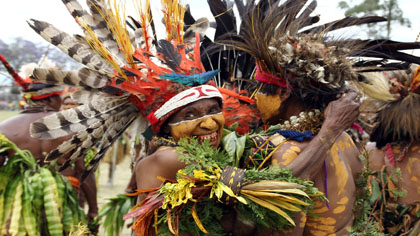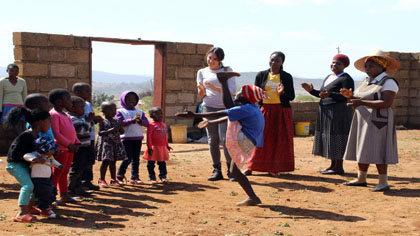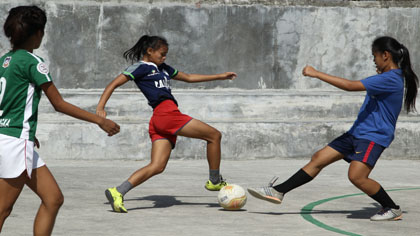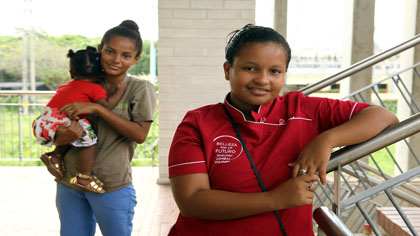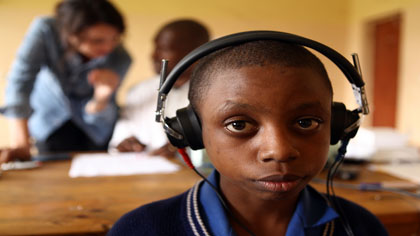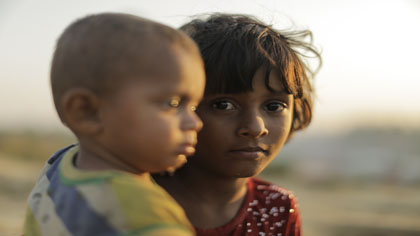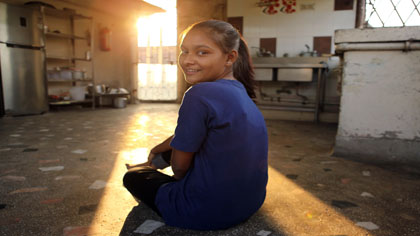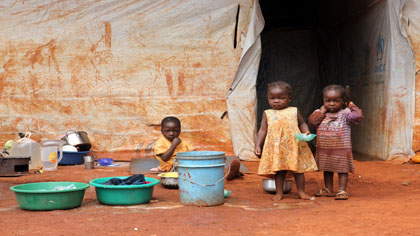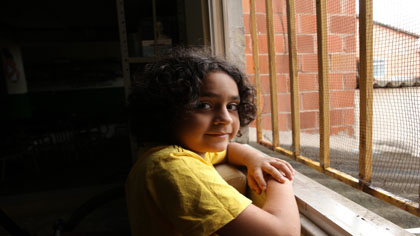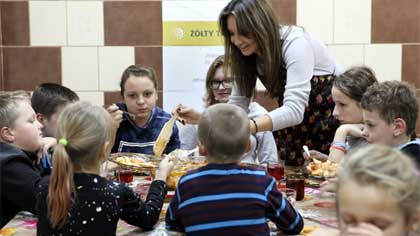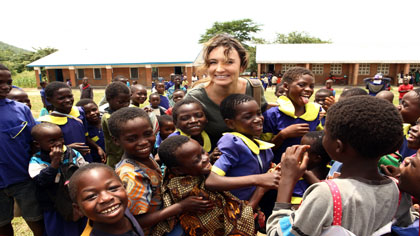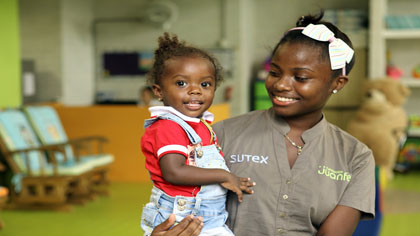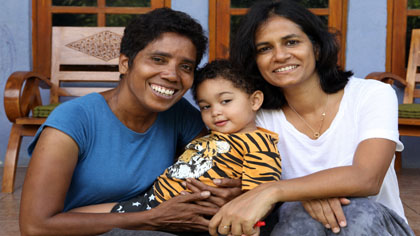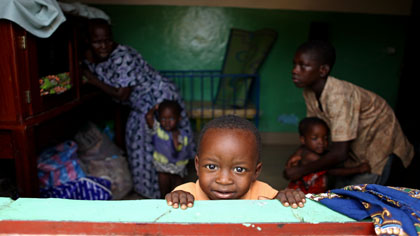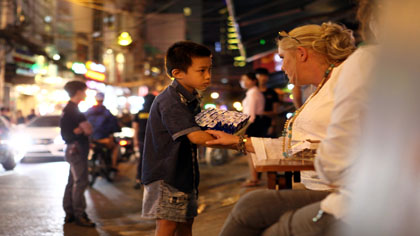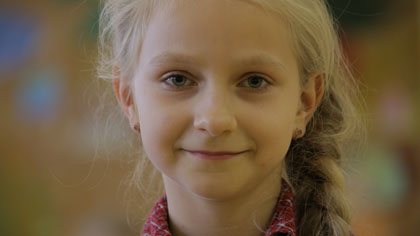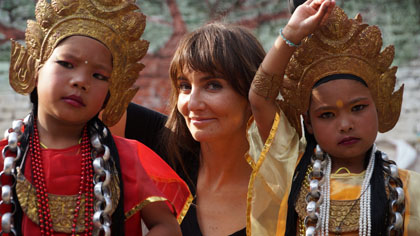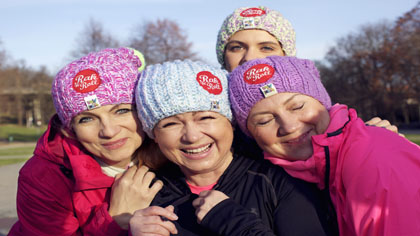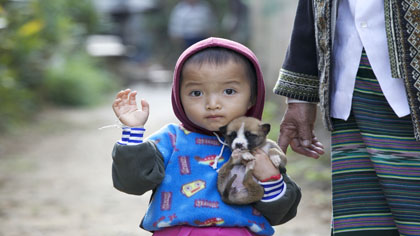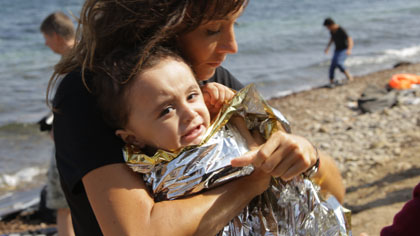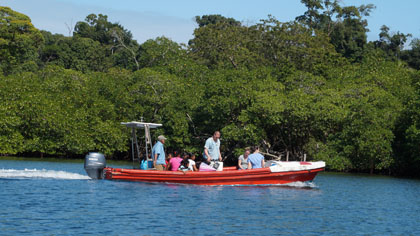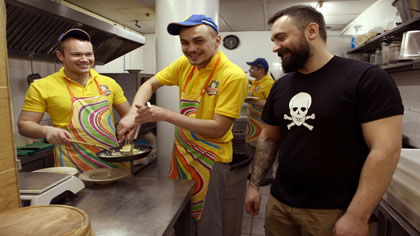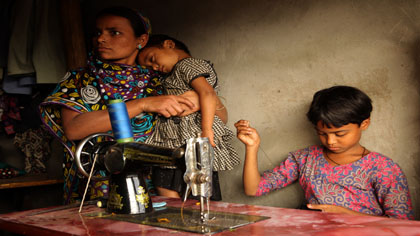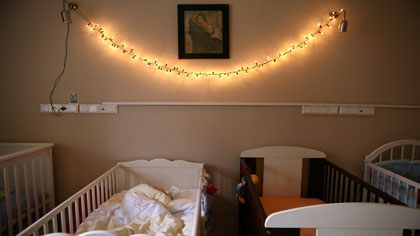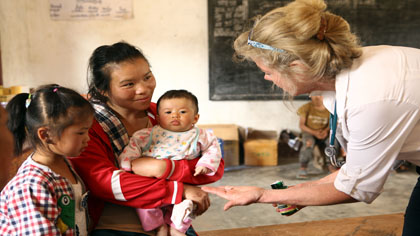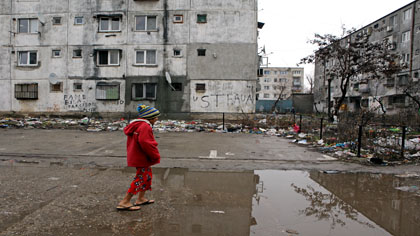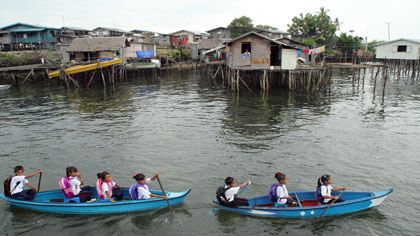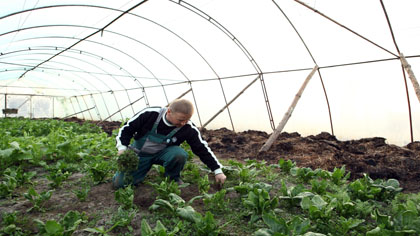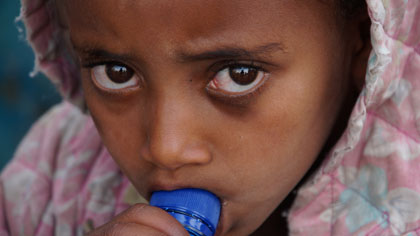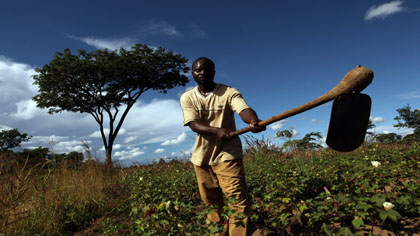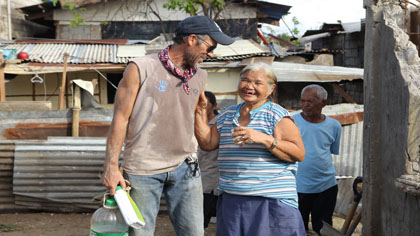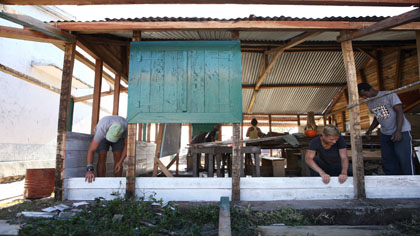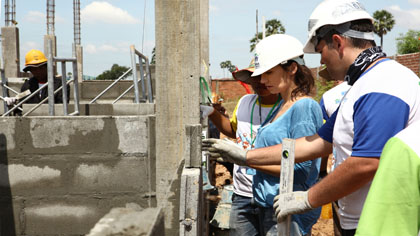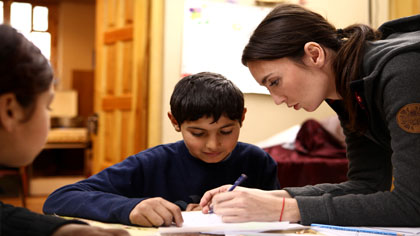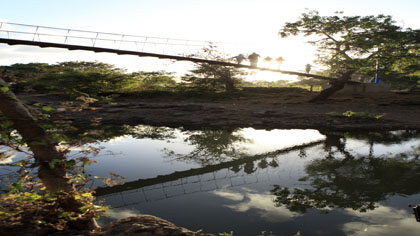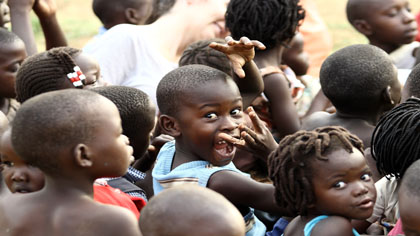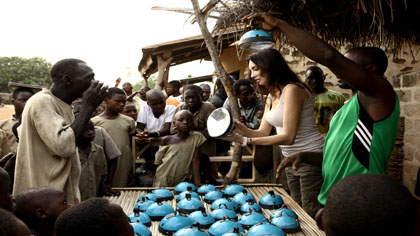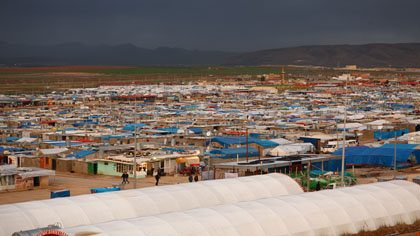Documentaries
Our documentaries explore some of the challenges experienced by communities around the world and the work done by local non-governmental organizations (NGOs), supported by the foundation, to tackle these challenges. Our "Domino Effect" series is created in partnership with TVN - the largest commercial television channel in Poland. This partnership has resulted in recognition at a number of film festivals around the world. In addition, we also work in partnership with CNN International to produce documentaries for the CNN Freedom Project, which examines modern slavery.
Season VIII
For the first time, the program is devoted entirely to women and the strength they have to face the difficulties resulting from, for instance, patriarchal culture, tradition, economic and political situation. In the eighth season of the documentary series "The Domino Effect", Dominika Kulczyk reaches Europe, Africa, and Latin America, where she meets, among others, immigrant women forced into prostitution, victims of ritual female genital mutilation, girls suffering from period poverty, or women who experienced the greatest genocide in Europe after World War II.

Episode 1: Spain - Leave our bodies alone
Though it is hard to believe, every 11 seconds, somewhere in the world, a girl undergoes a genital circumcision. It turns out that this is not just a problem among the few African tribes who follow traditional beliefs! This is a problem that affects women on our planet! It is estimated that over 200 million women and girls worldwide have undergone female genital mutilation (FGM). Dominika Kulczyk will discuss this problem in the first episode of the eighth series of "The Domino Effect". She will also present the activities of the Spanish organisation, Save a Girl Save a Generation, which fights against FGM and supports African migrant women in Madrid.
Episode 2: Bosnia and Herzegovina - Everyone I lost
"I am not afraid of death. I am afraid that I will die before I find my son's remains," says Haira, one of the heroines of the documentary series "The Domino Effect". For 25 years Haira has been looking for her missing son, who was most likely killed during the greatest genocide in post-war history of Europe. The genocide took place in July 1995 in what is now Bosnia and Herzegovina. Bosnian Serbs murdered over 8,000 men and boys, who were the Muslim inhabitants of Srebrenica. More than 1,500 victims of the massacre have still not been identified. In this episode, Dominika Kulczyk meets the Bosnian women who faced painful memories and returned to the place where their loved ones died. She also supports the organization Snaga žene, whose activities focus on, among others, the problem of post-war trauma passed on from generation to generation.
Episode 3: Tanzania - 690 grams
Pregnancy and childbirth are among the major threats to the life and health of young women in Tanzania. They suffer due to the shortage of trained medical personnel that would be capable of delivering a child in case of labour complications, the lack of basic diagnostic tools to identify pregnancy abnormalities, as well as the lack of ambulances or incubators to save the lives of premature babies. As a result, the perinatal mortality is very high: on average, 160 out of 1,000 newborns die. A notable exception is the hospital in Nyangao, where Dominika Kulczyk meets Małgorzata Olasińska-Chart from the Polish Medical Mission, who introduces her to the problems of local mothers and the activities run the organisation. The president of the Kulczyk Foundation meets young mothers who, after several incomplete pregnancies, can finally enjoy looking after their happily born and healthy children.
Episode 4: Poland - Without brakes
Mothers, lovers, sportswomen - all with disabilities. We will not see them on a daily basis in TV programs, press, movies, or TV series. People with motor disabilities are still presented in the Polish media mainly in the context of their limitations, thus evoking pity and compassion. In this episode of the “Domino Effect", Dominika Kulczyk, together with the Avalon Foundation operating in Poland, will prove that it is high time to overthrow this stereotype and break mental patterns. Through the Sexon and Avalon Extreme projects, the foundation motivates people with disabilities to enjoy sex, motherhood, art and sports, and encourages them to enter the world on an equal basis. At the same time, it also encourages the world, that is all of us, to be more open and to reject the harmful taboos.
Episode 5: Italy – Deceived
Slavery still exists in Europe in the 21st century! Over the past decade, trafficking in Nigerian women has developed into an extremely profitable and ruthless criminal industry, mostly controlled by Nigerian gangs that took root in Italy in the 1980s. The United Nations estimates that 80% of Nigerian women who come to Italy's shores are victims of human trafficking. Dominika Kulczyk presents the activities of the Italian organisation PIAM Onlus operating in and around Turin to support African migrant women who have fallen victim to human trafficking in Europe and have been forced into prostitution.
Episode 6: Guatemala - Harmony
"Violence, drugs, prostitution, gangsters… Everything you see when watching various TV series is reality here,” says Juan Pablo Romero Fuentes, a charismatic Guatemalan educator, feminist and founder of a unique school and social movement called El Patojismo: Dreams & Ideas in Action. Juan Pablo, who as a young boy got to know street life and lost many friends there, not only perfectly understands the destructive mechanisms that govern the everyday life of kids from difficult environments, but also knows how to illuminate and enrich their world. He is also aware of how to provide them with the tools necessary to break the cycle of violence. In the next episode of "The Domino Effect", Dominika Kulczyk visits El Patojismo to better understand the philosophy and activities of this organisation, especially those aimed at supporting girls and women.
Episode 7: Uganda - Red Leaf
Period poverty refers to a lack of medical and sanitary care, limited access to knowledge about menstrual health, and the stigma and shame surrounding menstruation, all of which prevents women from full participation in society. Dominika Kulczyk supports the Irise organisation, which organises menstrual training for girls and boys and break menstrual taboos in places where most girls have never seen a sanitary pad.
Episode 8: Costa Rica - The Cave of Light
La Carpio - slums located in the capital of Costa Rica, San José, are mainly associated with poverty and a high crime rate. The majority of its inhabitants are migrants and refugees from Nicaragua, which has suffered from political instability for decades. In this episode, Dominika Kulczyk shows the activities of Alicia Avilés and Maris Stella Fernández. In 2011, these two brave women founded the SIFAIS Foundation, which, thanks to the work of volunteers, provides the inhabitants of La Carpio with access to education, music lessons, English, judo, dance, tailoring, makeup, and many more! The activities run by the foundation make SIFAIS’ beneficiaries forget about the conditions which they live in, and allow them to dream and make plans for the future.



